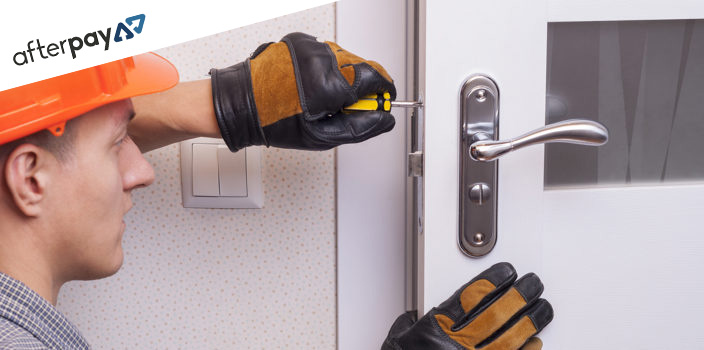In Melbourne, like in many other cities, locksmith scams can take various forms, preying on individuals in vulnerable situations. Here are some of the top locksmith scams that have been reported in Melbourne:
- Bait-and-Switch Tactics: This common scam involves locksmiths providing a low quote over the phone to attract customers, but once they arrive at the location, they claim that the job is more complicated than anticipated and demand a significantly higher price.
- Drilling Unnecessarily: Some dishonest locksmiths may resort to drilling locks unnecessarily, even when other non-destructive methods could be used to gain entry. This not only damages the locks but also inflates the bill for the customer.
- Hidden Fees: Scammers may add hidden fees to the final bill, such as call-out fees, mileage charges, or surcharges for after-hours services. These fees are often undisclosed upfront and can substantially increase the overall cost of the locksmith services.
- Unlicensed Locksmiths: Operating without a proper license or certification is illegal, yet some fraudulent locksmiths may do so to avoid regulation and oversight. These unlicensed individuals may lack the necessary skills and may not adhere to industry standards, putting customers at risk of poor quality workmanship.
- Lock Damage Scams: In some cases, dishonest locksmiths may intentionally damage locks or door hardware to justify higher charges for repairs or replacements. This can include drilling out locks unnecessarily or breaking door frames, leading to additional costs for the unsuspecting customer.
- Fake Reviews and Listings: Scammers may create fake online reviews or listings to make their services appear reputable and trustworthy. They may also use generic or misleading business names to avoid detection. It’s essential for customers to conduct thorough research and verify the legitimacy of locksmiths before hiring them.
Finding yourself locked out of your home or car can be a stressful situation, and in your haste to regain access, you may inadvertently fall victim to locksmith scams. Unfortunately, the locksmith industry has its fair share of unscrupulous individuals looking to take advantage of vulnerable customers. To safeguard yourself from these scams, it’s essential to be informed and vigilant. Here are some tips to help you avoid locksmith scams:
- Research Beforehand: Don’t wait until you’re in an emergency situation to find a locksmith. Take the time to research reputable locksmiths in your area and keep their contact information handy. Look for locksmiths with positive reviews, proper licensing, and physical addresses.
- Verify Credentials: Before hiring a residential locksmith in Melbourne, ask for identification and verify their credentials. Legitimate locksmiths should have a license or certification issued by the relevant authorities. Additionally, reputable locksmiths typically belong to professional organizations, such as the Master Locksmiths Association (MLA), which further validates their expertise and credibility.
- Get an Estimate: When you call a locksmith, inquire about their pricing and request an estimate for the services you need. Be wary of locksmiths who provide vague or excessively low quotes over the phone, as they may tack on hidden fees or inflate the final bill once the job is done. A trustworthy locksmith should be transparent about their pricing.
- Avoid Unmarked Vehicles: Legitimate locksmiths usually operate in branded vehicles adorned with their company logo and contact information. Be cautious of locksmiths who arrive in unmarked or generic vehicles, as they may not be affiliated with a reputable company. If you’re unsure, don’t hesitate to ask for identification or call the company to confirm the locksmith’s identity.
- Question Excessive Damage: Some dishonest locksmiths may resort to unnecessary and excessive damage to your locks or doors to inflate the bill. If a locksmith suggests drilling or replacing your locks without adequately explaining the reasons behind it, proceed with caution. Seek a second opinion if you’re unsure whether the proposed solution is warranted.
- Pay Attention to Red Flags: Trust your instincts and be wary of any red flags that indicate potential scams. These may include locksmiths who pressure you to make immediate decisions, refuse to provide written estimates or receipts, or exhibit unprofessional behaviour. If something doesn’t feel right, don’t hesitate to end the transaction and seek assistance elsewhere.
- Keep Records: After the locksmith has completed the job, make sure to obtain a detailed invoice that itemises the services provided and their associated costs. Keep a record of the transaction, including the locksmith’s name, contact information, and any warranties or guarantees offered. This documentation can be valuable in case of any disputes or issues down the line.
By following these tips and exercising caution when hiring a locksmith, you can protect yourself from falling victim to locksmith scams. Remember that investing a little time and effort upfront to find a reputable locksmith at Smith Lock can save you from potential headaches and financial losses in the long run. Stay informed, stay vigilant, and don’t hesitate to seek help from trusted sources if you suspect foul play.

